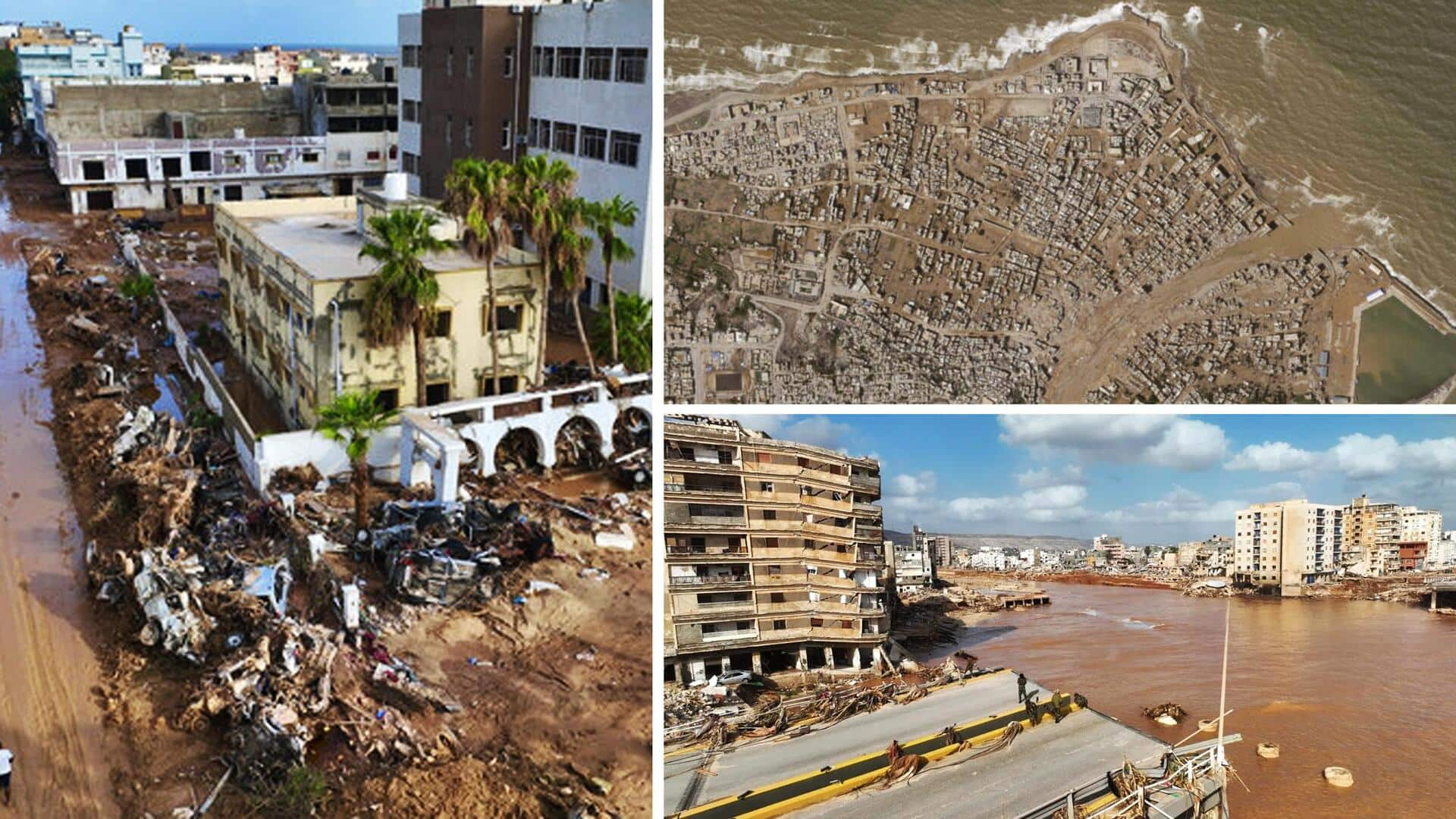
Libya floods: Death toll surges to 11,300, over 10,000 missing
What's the story
The death toll from the ravaging flooding in Libya's eastern coastal city of Derna surged to 11,300, with over 10,000 still missing, the United Nations (UN) said on Saturday.
At least 170 people were also killed outside of Derna due to the flooding, it said.
The conflict-hit region is also reportedly facing a severe drinking water shortage and the risk of being exposed to landmines.
Meanwhile, over 40,000 people have been displaced across northeastern Libya due to the extreme rainfall.
Details
Storm Daniel deepens humanitarian crisis in Libya
Per AFP, Storm Daniel brought heavy rains to northeastern Libya, compounding the impact of the region's deteriorating infrastructure and weak warning systems.
Two dams also burst last weekend, sending thousands of people and homes into the sea.
Derna was split in two when floodwaters rushed across the region, and the city alone saw 30,000 people displaced.
The UN warned about landmines and Explosive Ordnance of War (ERW) leftovers moving from flood waters, posing a risk to people on the move.
Twitter Post
Watch: Visuals of flood aftermath in Libya
Libya's devastating floods have killed 11,300 people in the eastern city of Derna, according to UN estimates. Another 10,100 people are still missing. pic.twitter.com/oRQr17U1AQ
— DW News (@dwnews) September 17, 2023
Crisis
Floods trigger drinking water crisis, poisonings
Moreover, the flooding in Derna has led to severe drinking water problems in the entire region, the UN report said, per CNN.
Almost three lakh children, exposed to flooding, reportedly face increased risks of cholera, malnutrition, diarrhea, and dehydration, the report added.
At least 55 children also reportedly died after consuming polluted water.
The UN report also highlighted "increased risks of violence and exploitation" for these children.
Insights
Challenge in retrieving decomposing bodies
As the death toll continues to rise, search-and-rescue crews are working tirelessly to find survivors and retrieve bodies.
The UN reported that most dead bodies are in the water, with "severely decomposing" corpses making retrieval increasingly difficult.
Dead bodies are also trapped under mud heaps in still-occupied residential parts of Derna, threatening a health crisis if the places are not evacuated.
"Have you ever seen a desert become the sea in the blink of an eye?" asked 22-year-old Muhammad al-Awkali.